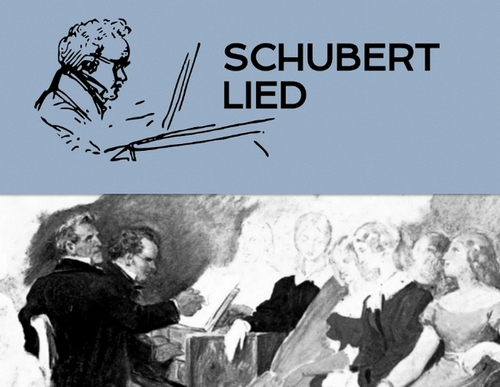
Now I can tell you about the good news: a new Lieder series will begin in October in Barcelona. Twelve song recitals, entirely dedicated to Franz Schubert, that will last three years.
The idea came up from the Franz Schubert Association. As some of you may know, this association used to organize concerts in Barcelona in winter, a "little sister" of the Schubertíada Vilabertran. Now it was time to resume those concerts under a new light, a new phase in a different way. And what better than bringing Franz Schubert into focus? He wrote more than six hundred songs (someday we'll talk about how many exactly) and, incredible as it may seem, there has never been a series about them in Barcelona. So, a project was planned in the medium term, an extensive anthology of lieder by Schubert (approximately one third of his production) that would gather the most famous songs, of course, and many other songs that aren't often programmed despite their value. There will be only two exceptions among the best-known works: the two cycles, Die schöne Müllerin and Winterreise, because we can listen to them regularly in Barcelona.
As if a series on Schubert wasn't daring enough, these concerts also intend to be an opportunity to introduce some young singers, artists who are being awarded at the most important Art Song competitions and who are making their debut in the main concert halls. For those who like to follow a singer’s career from their early years (and when are on the top, of course, to boast about it "I listened to them many years ago! I told you they were so good!"), this series will be a good opportunity to make new discoveries. As you can see, I think that's a great project, for many reasons.
The Franz Schubert Association will have two partners in this project: L'Auditori and the CNDM. From October on, the four first concerts of the series will take place at L'Auditori, as part of the chamber season; the singers will be tenor Ilker Arcayürek, baritones Samuel Hasselhorn and Josep-Ramon Olivé and soprano Franziska Heizen, and the pianists, the young Renata Rohlfing and Benjamin Mead and the experienced Francisco Poyato and Simon Lepper. And about the programmes ... Schubert. The apple of my eye. No need to say anything more, don't you think? Maybe you could go into the project website and discover which songs will be performed...
To illustrate this post, we're listening to Der Jüngling und der Tod, one of the songs programmed by Hasselhorn and Rohlfing, recent winners (last month) of Das Lied Competition in Heidelberg. A few weeks ago, we talked about Der Tod und das Mädchen, the relationship between grammatical gender and death's gender, whether it's a story of seduction ... Shortly after Schubert composed that song, his friend Josef von Spaun wrote a poem in response to that of Matthias Claudius, who also became a song, where the young man asks death to set him free and take him to the land of dreams; where the young girl says "ruhre mich nicht an" (don't touch me), the young man says "komm und ruhre mich" (come and touch me). And what does death answer? "Es ruht sich kühl und sanft in meinen Armen" (In my arms you will find cool, gentle rest). Maybe we should think about their words... In the meantime, listen to Der Jüngling und der Tod performed by Ann Murray and Graham Johnson.
I hope we meet in October at L'Auditori, at the first concert of Schubert Lied series!
Der Jüngling:
Die Sonne sinkt, o könnt ich mit ihr scheiden,
Mit ihrem letzten Strahl entfliehn,
Ach diese namenlosen Qualen meiden,
Und weit in schön're Welten ziehn!
O komme Tod, und löse diese Bande!
Ich lächle dir, o Knochenmann,
Entführe mich leicht in geträumte Lande,
O komm und rühre mich doch an.
Der Tod:
Es ruht sich kühl und sanft in meinem Armen,
Du rufst! Ich will mich deiner Qual erbarmen.
The Youth:
The sun is sinking; would that I could depart with it,
to flee with its last beams,
to end this nameless torture
and travel far away into a fairer world!
Oh, come, Death, and free me from these bonds!
I smile at you, o Man of Bone.
Lead me well into the land of dreams;
oh come and take me.
Death:
You will rest, cool and gentle, in my arms.
You call! I will end your torment.
(translation by Emily Ezust)













Comments powered by CComment